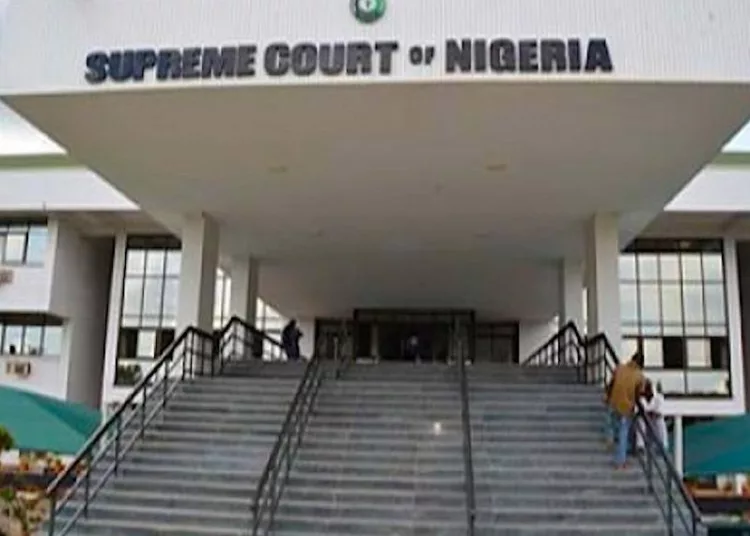
Supreme Court dismisses suit seeking to declare EFCC, ICPC, NFIU illegal
The Supreme Court, on Friday, dismissed the suit instituted by 19 states against the Attorney-General of the Federation, challenging the legality of the Acts establishing the Economic and Financial Crimes Commission (EFCC) and two other anti-corruption agencies.
It will be recalled that the EFCC was established by an Act of the National Assembly on December 12, 2002, by the then administration of former President Olusegun Obasanjo.
Following the appointment and confirmation of its pioneer Executive Chairman, Mallam Nuhu Ribadu, and other administrative officers by the Senate, the Commission commenced its operational activities on April 13, 2003, though its Establishment Act was later amended in 2004.
However, in the suit before the apex court, the states, through their respective Attorneys General, argued that Section 12 of the 1999 Constitution, as amended, was not complied with before the EFCC began its operations.
According to the plaintiffs, it was a mandatory provision of the Constitution that the majority of the Houses of Assembly of States must vote and agree to the passage of the EFCC Act, insisting that it was not something that only the National Assembly was legally allowed to do.
They told the Supreme Court that none of the states was carried along before the EFCC was established by the then President Obasanjo’s administration.
They argued that the Supreme Court had, in a decided case-law in Dr. Joseph Nwobike vs. Federal Republic of Nigeria, held that it was a United Nations Convention against corruption that was reduced into the EFCC Establishment Act and that in enacting this law in 2004, the provision of Section 12 of the 1999 Constitution, as amended, was not followed.
The plaintiffs maintained that since due process was not followed before the EFCC Establishment Act was enacted, it cannot be applicable in states that never approved of it, in accordance with provisions of the 1999 Constitution, as amended.
They argued that any agency that was formed as a result of the Act ought to be regarded as an illegal institution.
The 19 states relied on the fact that since the 1999 Constitution, as amended, is the supreme law of the land, any Act of the National Assembly that is inconsistent with the constitution ought to be declared a nullity.
The two other agencies the states also challenged their legitimacy, were the Independent Corrupt Practices and other Related Offences Commission, ICPC, and the Nigerian Financial Intelligence Unit, NFIU.
Even though the suit, marked: SC/CV/178/2023, was originally brought before the court by Kogi State, however, some states applied and were joined as co-plaintiffs while others filed applications for their own suit to be consolidated with the matter.
The Federal Government had on October 22, when the parties adopted their briefs of argument, urged the apex court to dismiss the suit for want of merit.
Represented by Prince Lateef Fagbemi, SAN, the Attorney-General of the Federation (AGF) and Minister of Justice, the federal government challenged the competence of the legal action, which it described as a threat to the ongoing fight against corruption and financial crimes in the country.
The AGF maintained that contrary to the contention of the states, the EFCC was validly established in line with the provision of Section 15(5) of the 1999 Constitution, as amended.
Fagbemi, SAN, equally refuted the claim of the plaintiffs that the Act that established the EFCC was an offshoot of an international convention that was not properly domesticated in Nigeria.
